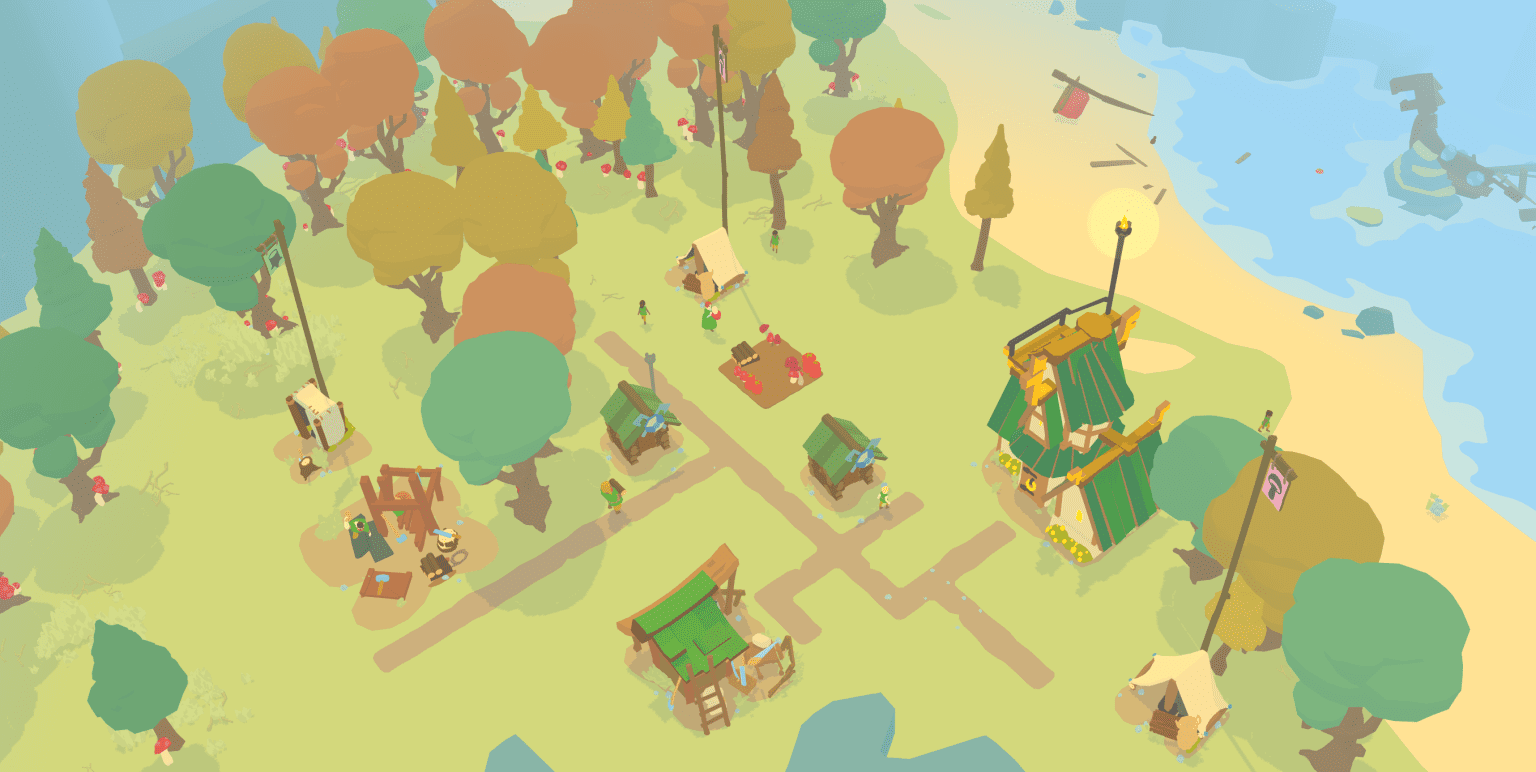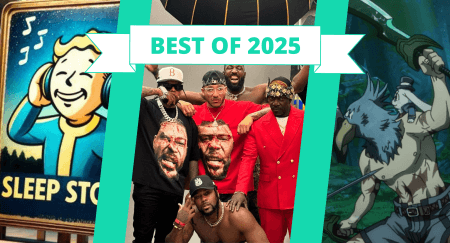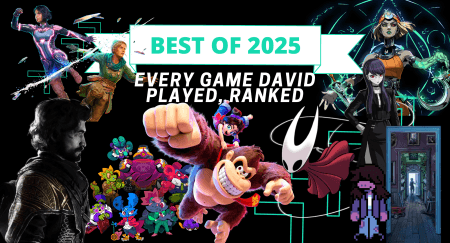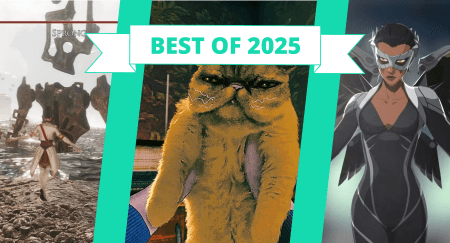It’s been a long day. My mind has been ticking nonstop through work and life issues; everything is urgent and important. Everybody needs something all the time. When I’ve done as much as I can, I lay down on the bed, and only breathe a sigh of relief when I open up my phone and click a game called Outlanders.
Welcome Home
Outlanders, released by Pomelo Games five years ago, is a colorful and playful town-building and management sim. It’s joyful at the micro and macro levels. When you choose something to build—like a lumber camp—the game emits a satisfying baAaADOOP! sound. Every level is centered around a singular, quirky leader. There’s Ogir, who’s dealing with a break-up that makes him want to build a bunch of taverns around town to keep the party going. Geraldine wants to lead a healthy fun island, fueled by smoothies instead of uncooked ears of corn. Prince Oliver is worried that no one takes him seriously, so he wants to build a bunch of statues around town.
In order to complete one of 30 main levels, players have to complete a core objective (like cooking a certain number of bread loaves) and have the option to try and finish with a particularly challenging and relevant bonus objective (such as making sure no one dies from hunger).
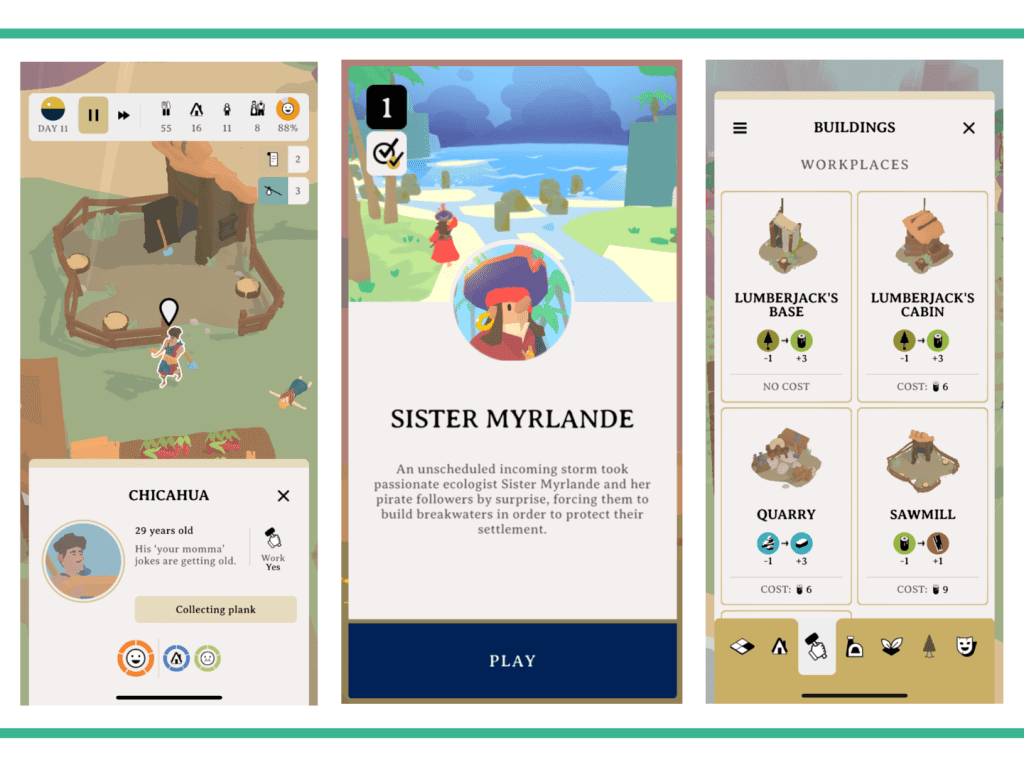
I think it’s a little weird that, after a day of running around trying to be helpful to freelance clients, family, friends, and communities, the only way I can relax is by doing the same thing in a little game. But maybe it’s like when you slow down a car… it’d be aggressive to go from 100 to 10. Managing my little worlds in Outlanders gives me a chance to wind down, slowly closing off the parts of my brain that would normally continue thinking about work emails and un-replied-to friend text threads and outstanding move tasks and house chores and self-care pressure and the constant frustration of ignoring my art. My brain is instead forced to refocus on things like making sure I’m harvesting enough mangoes and that all my followers are housed.
For years, this sweet little game could only be found on Apple Arcade (it launched last year on Windows as well), and likely only exists because of it.
The Appeal of Apple Arcade
Apple Arcade was/is Apple’s answer to profitable gaming subscriptions like Xbox Game Pass and what was, for a little while, a hot mobile gaming market.
I tried Apple Arcade when it first launched in 2019. I was—and still am—hopeful about the potential of quality games on mobile. (I was the only Punished Backlog Editor to say so in our recent ask-us-anything piece.)
One of my favorite games writers (Riley MacLeod, then at Kotaku and now one of the leads at Aftermath) was also an early adopter and had written about the similarly named Overland, which ended up being my first Apple Arcade download. In a few days, I binged Overland, a turn-based zombie survival game by Finji. While it was fun, the game didn’t really have the soul I was hoping to see and the ending disappointed me.
Eager to feel the rush of joy on my phone again, I downloaded a dozen games through the service all for a small monthly fee. It felt like a great deal. Some of these titles left strong impressions, such as Neo Cab and Tangle Tower, the latter of which went on to be one of my favorite games. Others I deleted after an hour or two. About half that I downloaded, like Guildlings, were charming but incomplete. Arcade was a good deal for these developers; they’d get an injection of cash, a promised publisher, and more time to keep building, all in exchange for an exclusive iOS launch.
Outlanders fell into this last category. I tried it because I thought it would appeal to my friend Allison (not to be confused with another gamer friend and fellow writer, Allison McDaniel) who loves city-building games.
We eagerly played through all the available levels of Outlanders, sending each other screenshots of particularly satisfying moments, like a well-organized town or a funny, randomized character trait (like “needs to pick a booger”) of a follower. We lamented when we reached the end of the first chapter of six levels, all that was available at the time.
At the end of my first month of Apple Arcade, I unsubscribed and didn’t think about it again for five years.
We Built This City…!
Cut to April of this year. A bunch of things hit the fan for me all around the same time. I knew it was going to be a marathon, and by July, I was already exhausted and not even halfway through it all. In the height of summer, I had lent my Switch to my partner for a few weeks, but I knew I still wanted to game. On cue, my phone reminded me I had three free months of an Apple Arcade demo.
Sure, fine. I checked out the virtual store. It was nice to see familiar icons, like for Guildings, that felt like great story investments and quality gameplay. I was disappointed at the amount of titles that seemed like shovelware or the equivalent of cheap plastic toys to give to a child in the hopes that sheer quantity will keep them amused. When I got to Outlanders and its recently launched sequel, my thumb paused. I tried to remember the game. Had I liked it? I thought so. I downloaded both.
The past several weeks have been filled with a renewed love for Outlanders. Whether I played for five minutes or 30 minutes, before bed or on an airplane or waiting in line somewhere, Outlanders soothed me.
I loved the plucky guitar music compiled with bonfire sounds. I delighted at the ever-complicated mission objectives, and felt no pressure to do anything too difficult. It felt like planning logistics for a vacation—productive but fun. I assign workers to do this or that, and click fast forward, and watch my best-laid plans come to fruition. Believe it or not, I often fall asleep playing the game, not because it’s boring, but because I’m so relaxed in the confidence that everything is handled. When I finished the main campaign, I switched to the sequel.
Outlanders 2 seems promising. It’s even more colorful. There are fun sounds. The graphics and tutorials are robust. But after a few minutes, I found myself homesick for the comfort of my little villages, and I went back to the first game.
This time in Outlanders, I made my way through trying to get the bonus objective on all thirty levels. Then, I went through the Chronicles, sort of DLC-ish extended story arcs that are sometimes so challenging that they’re not even fun. Combined, there’s 100 victories that can players can aspire to earn. Over the past few months, in the quiet spare moments of my life, I have achieved 78 of them. I’m not a completionist by any means, but Outlanders makes me feel like I can get things right, even if it takes me a few tries.
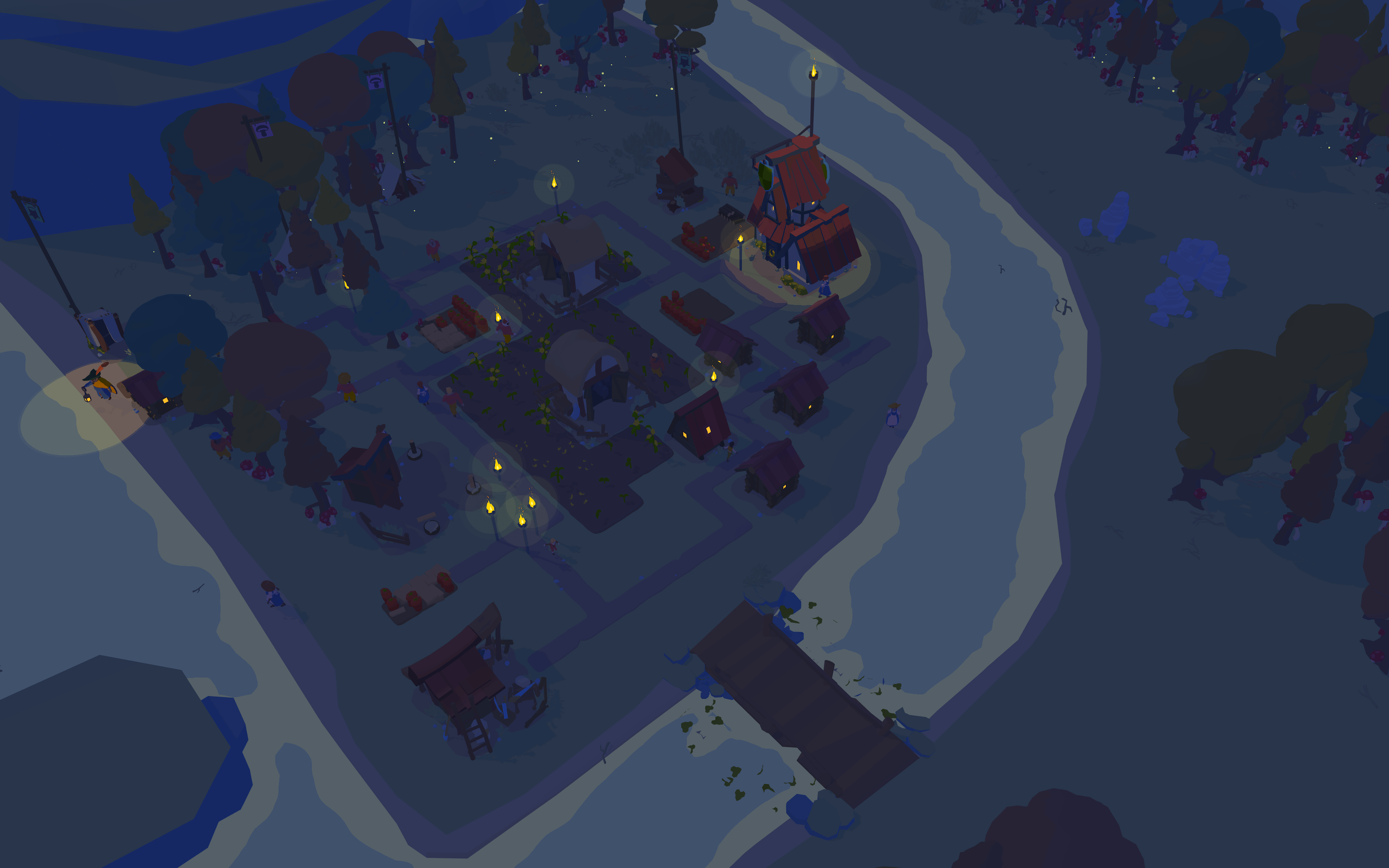
What Games Do We Play in Times of Stress?
Outlanders is not a cozy game, but I have found it incredibly soothing and fulfilling.
It makes me think about the games and content that we turn to in difficult times. How else did I play hundreds of hours of Disney Dreamlight Valley in summer 2023 when I was super depressed? How convenient it is that Great British Bake-Off (I refuse to call it by its Americanized name) appears in the midst of a stressful fall semester, colored in spring pastels and featuring luscious cakes? How lovely is it to load up and old favorite game or movie around the new year? How special is it to have a hobby that makes you feel like your brain makes sense?
Sometimes people ask me how I get so much stuff done. (I am a perennially busy person. It is not something I necessarily like about myself but it’s my reality right now.) And yet, when I hear them say that, rather than think of all the things I achieve, my mind goes to a running list of all the outstanding tasks.
![]()
The only place where I don’t feel I’m constantly behind is in this colorful game from five years ago. There’s probably a whole other op-ed here about how it feels representative of how many of us are, in small and big ways, stuck in a pre-Covid moment. Or something to be said about how perhaps this is the only place I feel I really have any control, in a year (to two to three) where it feels like I haven’t had much at all.
The only thing I know for sure is that I’m nearing the end of my free Apple Arcade trial. Do I spend $6.99 a month to keep working my way through the remaining 22 bonus objectives or try the sequel again? I don’t know. But I do know that Outlanders has brought me a sense of security, comfort, and peace that I have desperately needed over these past few months.
Playing Outlanders makes me feel that progress is not only achievable, but enjoyable. And I am very, very grateful for it.
Outlanders (Pomelo Games, 2019) is available on iPhone and iPad through Apple Arcade, or on Windows PC via Steam for $14.99.
Amanda Tien (she/her or they) loves video games where she can pet dogs, punch bad guys, make friends, and have a good cry. She started writing for the site in 2020, and became an editor in 2022. She enjoys writing about mystery games, indies, and strong femme protagonists.
Her work has also been published in Unwinnable Monthly (click here to read her cover feature on Nancy Drew games), Salt Hill Journal, Poets.org, Litro Magazine, Public Books, and more. She was the Co-Founder and Editor-in-Chief of Columbia University's Culinarian Magazine, and served for two years as the Managing Editor of Aster(ix) Literary Journal.
She recently graduated with a MFA (Master of Fine Arts) in Creative Writing from the University of Pittsburgh. Her writing, art, graphic design, and marketing work can be viewed at www.amandatien.com.
She does not post a lot on social, but you can find her on X and on Instagram.


